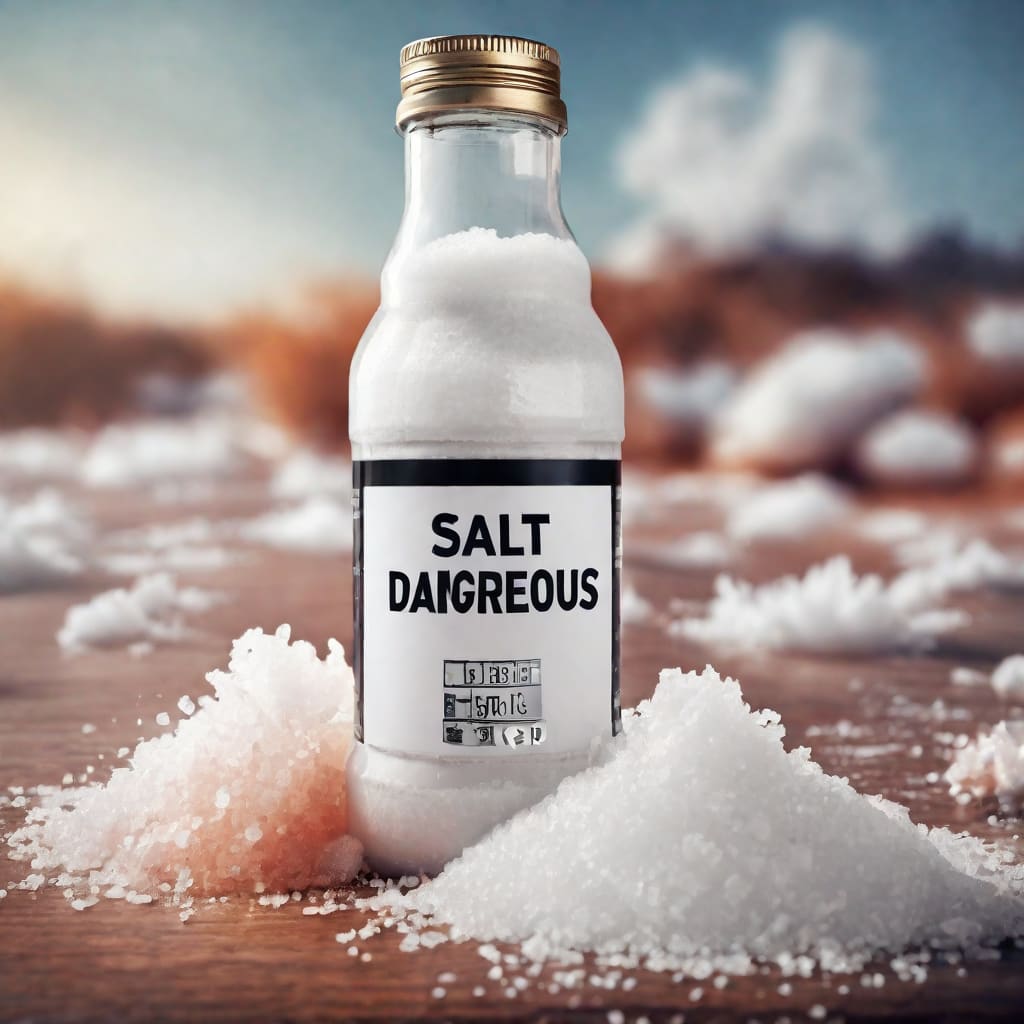Experts Caution: Excessive Salt Consumption May Heighten Diabetes Risk
Unveiling the Link Between Excessive Salt Intake and Elevated Diabetes Vulnerability

A Tulane University study has found that eating excessive amounts of salt could significantly increase the risk of developing Type 2 diabetes. The research, conducted with a sample size of over 400,000 individuals, reveals that regularly adding salt to food is associated with a higher risk of diabetes, highlighting the importance of reducing salt intake as a preventive measure. Those who frequently added salt had up to a 39% increased risk compared to those who rarely or never used salt. These findings underscore the benefits of low-sodium diets in mitigating the risk of diabetes.
This groundbreaking study is the first to establish a clear link between frequent salt consumption and Type 2 diabetes. Individuals who are already at risk for diabetes are often advised to avoid sugar, and this research suggests that they should also consider minimizing their salt intake.
The study involved surveying more than 400,000 adults registered in the UK BiobRetryank about their salt consumption. Over a median follow-up period of 11.8 years, it was found that over 13,000 participants developed Type 2 diabetes. Compared to individuals who rarely or never used salt, those who added salt to their food sometimes, usually, or always had a respective 13%, 20%, and 39% higher risk of developing the disease.
Lead author Dr. Lu Qi, the HCA Regents Distinguished Chair and professor at the Tulane University School of Public Health and Tropical Medicine, emphasizes that reducing salt intake could have multiple health benefits, including a decreased risk of cardiovascular diseases, hypertension, and now, Type 2 diabetes. The study also found an association between higher salt consumption and elevated body mass index (BMI) and waist-to-hip ratio, suggesting that salt may contribute to risk factors such as obesity and inflammation.
More research is needed to fully understand the mechanisms through which high salt intake is linked to a greater risk of Type 2 diabetes. However, Dr. Qi believes that salt may encourage people to consume larger portions, increasing the likelihood of developing adverse health outcomes. To further explore these connections, future investigations will involve clinical trials that control the amount of salt participants consume.
Despite the need for additional research, Dr. Qi emphasizes that it is never too early to consider alternative methods of seasoning food with lower sodium content. Making this change, he notes, is relatively straightforward and can have a tremendous impact on an individual's overall health.
The study, titled "Dietary Sodium Intake and Risk of Incident Type 2 Diabetes," was authored by Xuan Wang, Hao Ma, Minghao Kou, Rui Tang, Qiaochu Xue, Xiang Li, Timothy S. Harlan, Yoriko Heianza, and Lu Qi. It was published in the Mayo Clinic Proceedings on November 1, 2023 (DOI: 10.1016/j.mayocp.2023.02.029). Funding for the study was provided by the National Heart, Lung and Blood Institute, the National Institute of Diabetes and Digestive and Kidney Diseases, the Fogarty International Center, and the Tulane Research Centers of Excellence Awards.
Excessive salt consumption can have several detrimental effects on our health. One of the primary concerns is its impact on blood pressure. High-sodium diets can lead to an increase in blood pressure, which is a major risk factor for cardiovascular diseases like heart attacks, strokes, and hypertension. Over time, this sustained high blood pressure can damage blood vessels, organs, and contribute to the development of heart disease.
Another disadvantage of excessive salt intake is its effect on fluid balance. Sodium attracts water, and consuming too much salt can lead to fluid retention in the body. This can cause bloating, puffiness, and swelling, particularly in the extremities. Fluid retention can also strain the kidneys, potentially leading to kidney problems and impairing their ability to properly filter waste and toxins from the body.
Salt-rich diets have also been linked to an increased risk of osteoporosis. Excessive sodium intake can cause calcium loss from bones, which can weaken them over time and increase the risk of fractures and bone density issues.
Furthermore, consuming too much salt can have negative effects on hydration levels. High sodium intake can disrupt the balance of fluids in the body, leading to dehydration. This can lead to symptoms such as thirst, dry mouth, fatigue, and decreased cognitive function. Another concerning disadvantage is the potential link between salt consumption and stomach cancer. High-salt diets have been associated with an increased risk of developing stomach cancer, particularly in individuals with Helicobacter pylori infection, a bacterium commonly found in the stomach.
In conclusion, excessive salt intake can contribute to high blood pressure, fluid retention, kidney problems, osteoporosis, dehydration, and potentially increase the risk of stomach cancer. It is important to be mindful of our salt intake and opt for a balanced diet to maintain good health.
About the Creator
Enjoyed the story? Support the Creator.
Subscribe for free to receive all their stories in your feed. You could also pledge your support or give them a one-off tip, letting them know you appreciate their work.





Comments
There are no comments for this story
Be the first to respond and start the conversation.